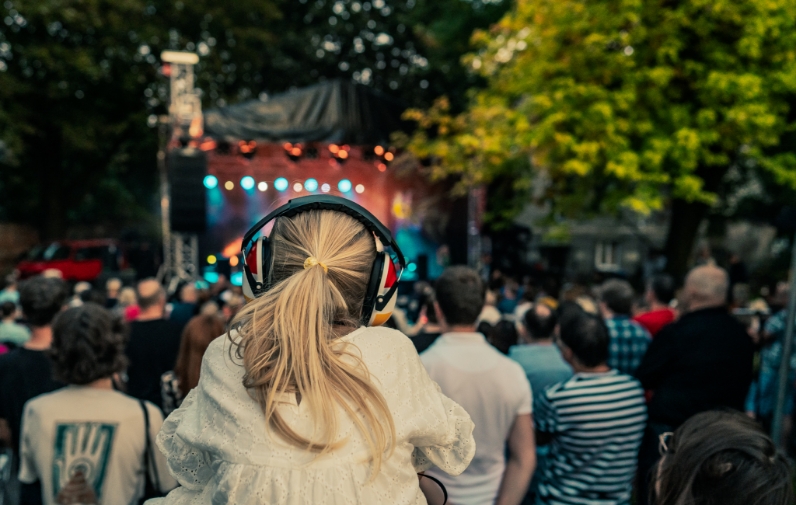
ABOUT FESTIVAL
Where are we from?
The Łódź of Many Cultures Festival (since 2002 the Dialogue of Four Cultures Festival and since 2009 the Łódź of Four Cultures Festival) came into being almost a quarter of a century ago – at a time when Łódź was emerging from the economic and social crisis caused by the painful process of transformation. The Festival restored pride in their city to the people of Łódź, and proved to visitors that it is a unique place whose original culture is still waiting to be discovered and appreciated. The Festival recalled that the history of Łódź was made up jointly of Jews, Germans, Poles, Russians and representatives of many other nations. It was a celebration of diversity and intercultural dialogue.
Over the years, this most Lodz-based of festivals has been transformed into a space for reflection on pressing contemporary issues. While placing the idea of dialogue at the centre, it was at the same time far from projecting an idealised vision of a conflict-free coexistence of cultures. It posed questions about the meaning of human rights today, introduced anti-discrimination education, and insisted on respect for every life, while acknowledging the saving power of community.
We want these issues to continue to resonate powerfully in the festival events.
Why do we change?
Over the two decades of the Festival, Łódź has experienced profound changes. The post-industrial heritage has been spectacularly reinterpreted, making 19th century factories and factory owners’ palaces pulsate with life again today. At the same time, the character of the urban community is changing – the streets are becoming multilingual again, as they were a century ago. More hitherto marginalised communities are clamouring for a voice and visibility in the democratic polis.
With a changing world, our understanding of culture is changing. Culture is expanding its field – cultural identity today cannot be linked only to a sense of belonging to an ethnic, national or religious community. We know that it is much more diverse, fluid and open, that it is shaped by a much richer network of community relationships and experiences. The cultural landscape created by identities so understood requires a different description. This is why we want to present contemporary Łódź as a space where not only Ukrainian, Polish and Roma cultures coexist – and intermingle – but also feminist, queer, folk, disabled, ecological, children’s and youth cultures. More – we want to ask about culture as a phenomenon in the creation of which people are not the only ones involved. We point out that human cultures are just a part of complex ecosystems and that our continued existence depends on the survival of these ecosystems.
Where do we go?
By proposing a new name, the Łódź of Many Cultures Festival, we do not intend to cut ourselves off from the ideals that the originators of this unique festival dreamed of realising. However, we are convinced that being faithful to these ideals places an obligation on us to follow the changes that are taking place in the cultural landscape of Łódź, as well as in the contemporary understanding and experience of culture.
We want the Festival to be a mirror in which this new Łódź can see itself. At the same time, we want it to contribute to changing it further, transforming it into the city of the future – a city that is sensitive, open to different communities, respectful of different experiences and identities, built on dialogue, empathy and care for every existence.
We want cultural diversity to reveal itself in the Festival on yet another level – to make it a place where artistic people representing a broad spectrum of creative disciplines can meet and collaborate: from theatre, performance, film, literature, music, visual arts and various forms of artistic activism. Among the creators of the events that make up the Festival, we see a place for internationally acclaimed artists as well as people who are important for their work in the Lodz community. We invite both large cultural institutions and small, locally-based non-profit organisations to join us. In this way, we are transforming the Festival into a platform for the exchange of disparate ideas and artistic experiences and, at the same time, a place for making contacts that may result in new joint ventures in the future.